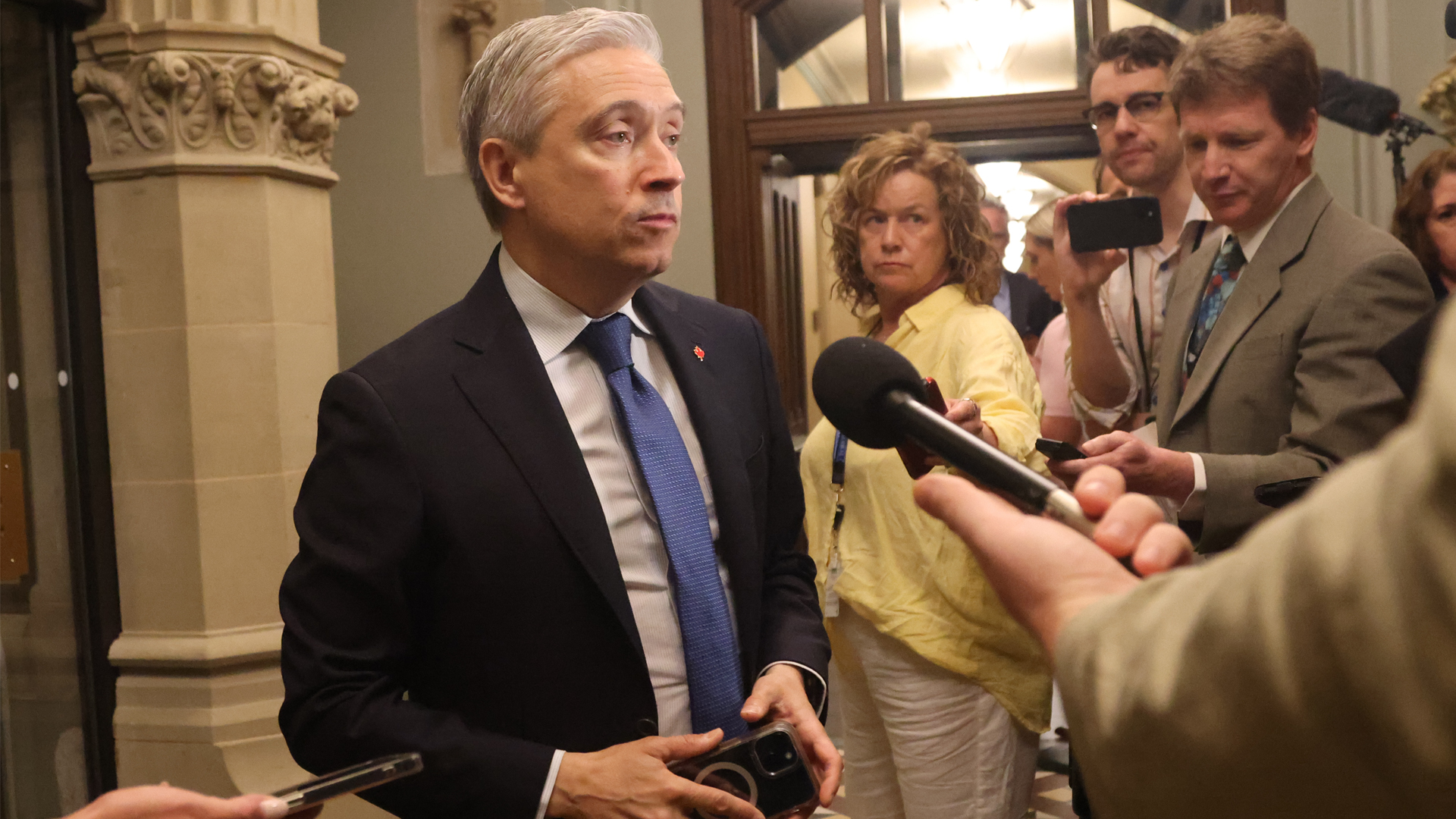
While canvassing as a Liberal candidate in Gatineau, Quebec, during the 2011 election campaign, I happened upon a woman, quite obviously well read, who asked, simply and reasonably, “Why are we having this election?”
After a long day of walking up and down streets, the reply was well rehearsed. “Well, ma’am, we’re the Liberal Party and we have a family pack. We’ll contribute one thousand dollars for your children’s education. We’ll introduce a tax credit to help you look after your parents…”
She stopped me. “You’re the Liberal Party. We’re having an election so you can bring in a ‘family pack.’ Is that it?”
That’s when it hit. The Liberal Party, in response to the most bewildering and troubling economic times in a generation, had aimed very low indeed. Our core offering in what will prove to be an exceedingly important Canadian election consisted of policy confections that screamed, “The focus groups loved this one!” Unsurprisingly, Canadians took a pass.
It needn’t have been so. Sadly, the Liberal Party learned the wrong lesson from the demise of the Green Shift, former leader Stéphane Dion’s well-crafted but badly sold signature policy. In retrospect, we would have been better off trying again to sell Canadians on its virtues. Indeed, there was far more praise for it at the doors than there was for the “family pack.”
Michael Ignatieff, our leader, was one of the great thinkers of his generation, articulate in both official languages. An inspiring Canadian, progressively managed and focus-grouped down into a small box called a “family pack.”
Canadians, sensing an unambitious Liberal option, opted for clearer prescriptions on the left and the right. As Liberals, we must never make the same mistake again.
The first step will be rediscovering our common ground. We must seek to agree on some big things without attack or rancour, for there is obviously little tolerance left among Canadians for stories of Liberals fighting with each other.
If we cannot articulate a grander ambition for the country, in every region of the country, we will fail to fulfill the expectations that Canadians have of the Liberal Party. It is then that we also fall vulnerable to narrow characterizations of our leaders and our policies.
An odd phenomenon occurred during last year’s election. Despite its disastrous outcome, the party never raised more money. Reports emanated from constituencies all over the country about record numbers of voter identifications, sign locations and volunteers; the Liberal Party was alive. That simple fact, coupled with the massive, organic turnout at the national convention in snowy Ottawa in January 2012, speaks to a hunger for a Liberal renaissance.
Whether in convention, in constituencies or in small groups, one cannot escape the sense that the party’s leadership has failed to keep up with Liberals. The code words are renewal and rebuilding, but the implications are more sweeping. The ambitions of Liberals for the country exceed the stated ambitions of its spokespersons.
It is said that Liberals don’t do well in opposition. There is much to substantiate this belief. Our opponents’ ads and attacks have merely served to underscore the caution with which an opposition Liberal Party has approached the great issues of the day. Liberals need to get assertive again.
This time, Liberals must get a lot better in opposition, and with great haste. For if we wish for Canadians to turn back toward the Liberal Party as their government, we would do well to aim high with our ambition for the country, and start acting, well, like liberals.
So, where to begin? Well, for starters, let’s dispense with the media construction that is a “unite the left” arrangement with the NDP. Liberals are not New Democrats. Anyone attending our very successful January convention would have observed the lack of common DNA, the abject disinterest in social democratic experiments, the lack of umbilical attachment to big labour.
Neither are Liberals Conservatives. Liberals have no interest in the narrowness of social conservatism, in an unfettered belief in markets, the denial of climate change (and other) science and the reduction of the federal government’s ability to deliver on its core requirements.
We will find ourselves agreeing with New Democrats or Conservatives from time to time. But let us never confuse that with the existence of a shared belief system. We must resolve to restore the Liberal belief system and to proudly promote it to Canadians. So let us begin agreeing on some big things, and at the same time, agree to never again aim so low.
If we cannot articulate a grander ambition for the country, in every region of the country, we will fail to fulfill the expectations that Canadians have of the Liberal Party. It is then that we also fall vulnerable to narrow characterizations of our leaders and our policies.
What are those things? A compelling new principle, most recently articulated by young British Columbian author Matthew Kalkman, holds that Liberal policies on key issues must hinge on the impact they will have on future generations. This notion of sustainability is a reassuring, Liberal perspective that rejects the deconstructive impulses on the right, and the disregard of debt on the left. It also restates what has been a Liberal credo — that we govern for the next generation, not the current one.
I, for one, hope we begin articulating the principles that have set us apart over the course of Canada’s history, while bursting the myths that we have allowed our opponents to propagate.
Liberals must marry the enviable track record of economic and fiscal management of the 1990s and 2000s with the commitments to justice, equality and nation-building that are at the heart of the party’s legacy to Canada.
Let us, for example, set as a first principle that Liberals are the party of equality of opportunity. That a Liberal government, using the levers available to it, will offer to all Canadians the same opportunities to develop and to prosper.
Surely the least one generation can offer the next one is the same set of possibilities it enjoyed: equal rights, access to life’s basic necessities, educational opportunities at every level and a set of incentives to constantly improve on one’s situation.
In today’s Canada, only some of these opportunities are offered to only some Canadians. Examples abound. Too often, an Aboriginal youth cannot count on life’s necessities. An engineer or a doctor, recently immigrated to Canada, finds it very difficult to become credentialled in his or her province of residence. Women still struggle to be compensated equally with their male counterparts. Poor Canadians can’t fully access the justice system, or aspire to higher education.
And while Canada has not yet reached the extremes found in the United States, income inequality must not be permitted to fester in Canada. Redressing these inequalities has been, and must continue to be, at the heart of Liberal policy.
A Liberal government ought to commit to tax fairness as a means to limiting income inequality. This could entail a significant streamlining of the tax code, so that the perversions of so many deductions, credits and loopholes are discontinued. Liberals should assure all citizens that they would get equality, transparency and fairness in the tax burden that they carry, while society’s overall tax burden would not increase. Like Paul Martin, today’s Liberals must also rededicate themselves to eliminating the scourge of deficit and debt.
Equality of opportunity will also mean that a Liberal federal government takes up the trade and commerce responsibilities set out for it in the constitution. The recent Supreme Court ruling, while disallowing the Conservative vision for a national securities regulator, practically cries out for a parliamentary articulation of a federal role in the modern economy.
In this spirit, a Liberal Party, committed to equality of opportunity and renewal of federalism, should begin an exercise aimed at dismantling interprovincial tariffs and trade barriers. A federal government should not seek to formalize trade agreements between Canada and another country before ensuring barrier-free trade and full labour mobility between, say, New Brunswick and Saskatchewan. No country of 34 million people should allow itself the inequalities of opportunity that result from having 10 or more protected internal markets.
Canada must also begin the next-generation infrastructure renewal that will allow the country to compete and the next generation to prosper. Working with communities and provinces, a Liberal government should aim to leverage our currency’s value and invest in the transportation, environmental, communications, energy and other systems that will remove the bottlenecks from the economy and unleash the power of our innovators. This would not be gazebo-style Conservative “stimulus.” Liberals must identify and commit to invest in the modern infrastructure required for Canada’s continued prosperity.
For example, Alberta Premier Alison Redford recently began to evoke the need for a national energy strategy, aimed at fostering greater coordination in environmental standards, new infrastructure and getting energy resources of all kinds to new markets. The Liberal Party should jump at this opportunity to commit to being the catalyst for such coordination, and to ensure sustainable development of all of our energy resources.
Others will bring their ideas as part of the renewal and regeneration that has already begun to occur throughout the Liberal Party. It is sure to be an exciting time, and one that re-centres the Liberal Party after several years of poor definition and poorer communication.
For last year, when the country was looking for economic leadership, the Liberal Party demurred. Now that the country is looking to cement our economic prospects while ensuring that all Canadians can be along for the ride, Liberal voices must once again be heard.
Photo: Shutterstock







